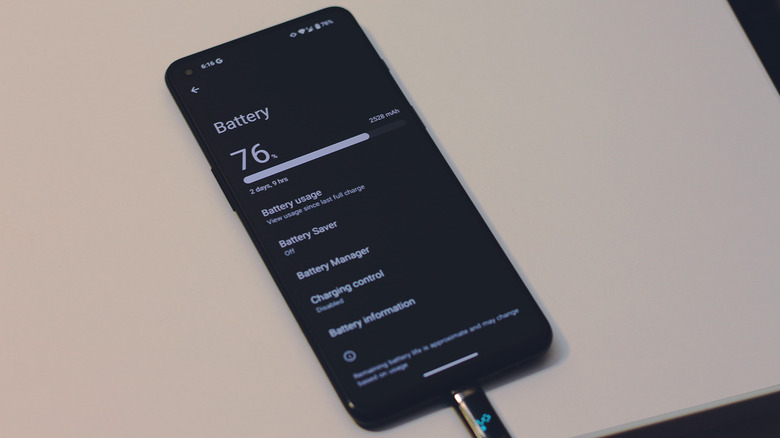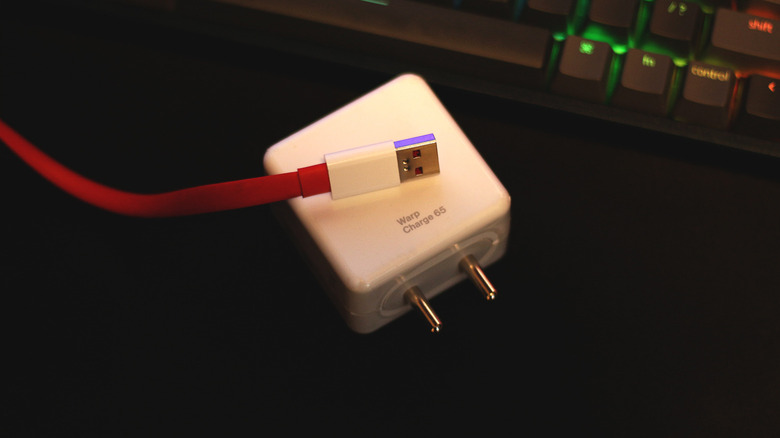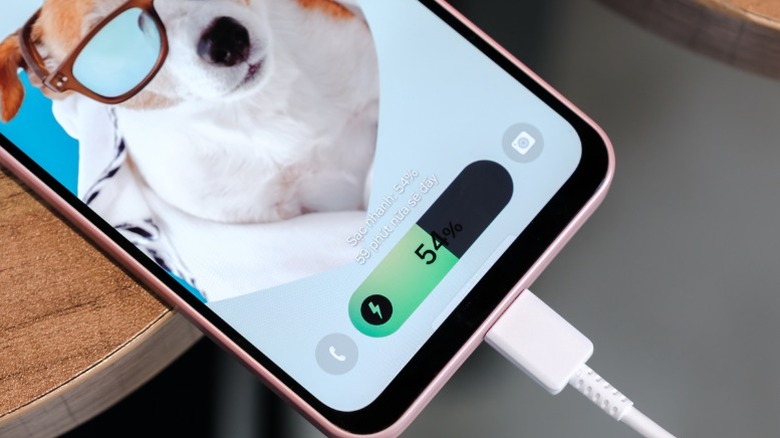Android Battery Going Down While You Charge It? Here's What You Can Do
With some of the most powerful smartphone processors being used in not just flagship-grade, but also mid-range options, running graphically intensive apps and games has become second nature. Increased horsepower might suggest significantly worse battery performance with every iteration, but that's actually not true at all. Newer processors are not just powerful, but also efficient — and with battery capacities physically creeping up, most modern phones don't struggle to make it past a full day.
When the time comes and you spot the low battery notification, you realize that charging options have also never been more convenient. You have wireless charging, super-fast wired charging, or some devices, like the OnePlus 13 we reviewed, come with incredibly quick wireless charging as well. Some of the more common battery issues with phones include slow charging, faster drain, or overheating — but all of these problems pale in comparison to when you plug in your phone and it still loses charge. There are a multitude of reasons as to why this may happen, but inspecting your phone battery's age and the charger's specifications is often the most effective way to find a solution.
Incompatible chargers and degraded batteries
Gone are the days when you would receive a handful of accessories in the box with your purchase. Most smartphones now only ship with a USB cable that can be used for charging and data transfer. This means you, as a consumer, are responsible for picking the best power adapter — something that can ideally deliver the maximum charging speeds to your phone while not posing any risk of overheating.
Sure, with USB Power Delivery being adopted by many premium smartphones, things become a little less confusing when shopping for the right charger. That said, it is quite easy to mistakenly use a weaker charger to top up your phone. The best way to discern which power adapter is ideal is to refer to your phone's technical specifications or product page. A compatible charger and cable will ensure that you get the fastest possible charging speeds.
If you've been using the same phone for a few years, it's likely that battery health has significantly deteriorated. There are third-party apps that will help you check the battery health of your Android phone. Modern iPhones can display this number in Settings > Battery > Battery Health. Your smartphone might notify you if its battery has aged enough to warrant a replacement. A degraded battery may struggle to hold a charge consistently, especially if you're using your phone while it's charging.
Maximize battery and charging performance on Android
Though uncommon and often easier to spot, apps running in the background of your phone may contribute to battery drain, even when it is asleep or charging. Being on the lookout for any suspicious apps or services is also a good way to strengthen your phone's data and privacy. Graphically demanding games like "Call of Duty: Mobile" or "Genshin Impact" can dial things to eleven, causing your phone to overheat — subsequently placing a hold on charging. This could be another reason why your phone might be draining battery despite being plugged in.
Again, running into this issue too often likely warrants a battery replacement or a switch to a more compatible power adapter. A fresh battery can not just help your phone with endurance, but also bring back most of the performance from day one. Avoid charging your phone if it is already hot — heat can negatively affect battery health, so be sure to place your phone in a cooler environment while charging.
There are other common tips that can help you maximize battery life on your phone, including dimming your screen, disabling GPS or Bluetooth when not in use, and following good charging habits like not leaving your phone plugged in at 100% too often for too long. Under dire circumstances, the power saver mode on your phone can extend battery life by restricting background services and dropping the display's refresh rate.


